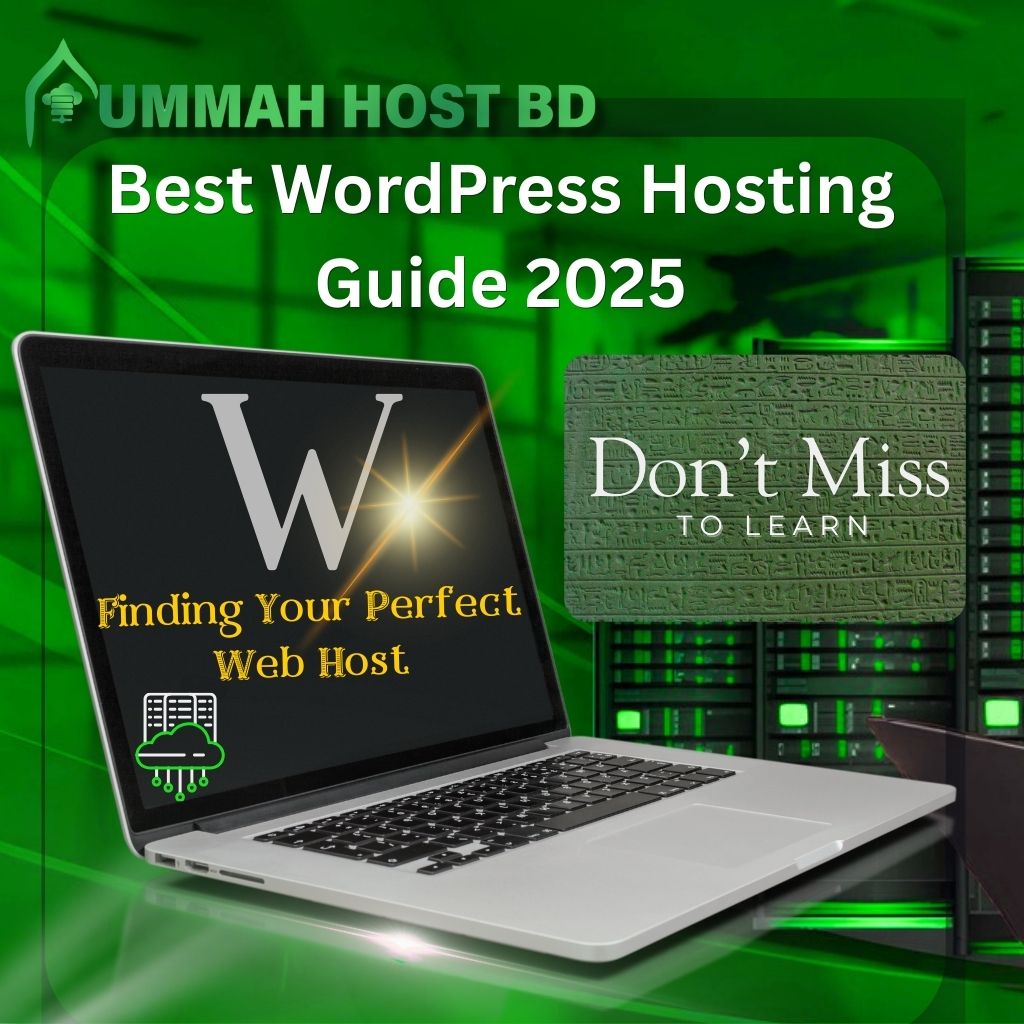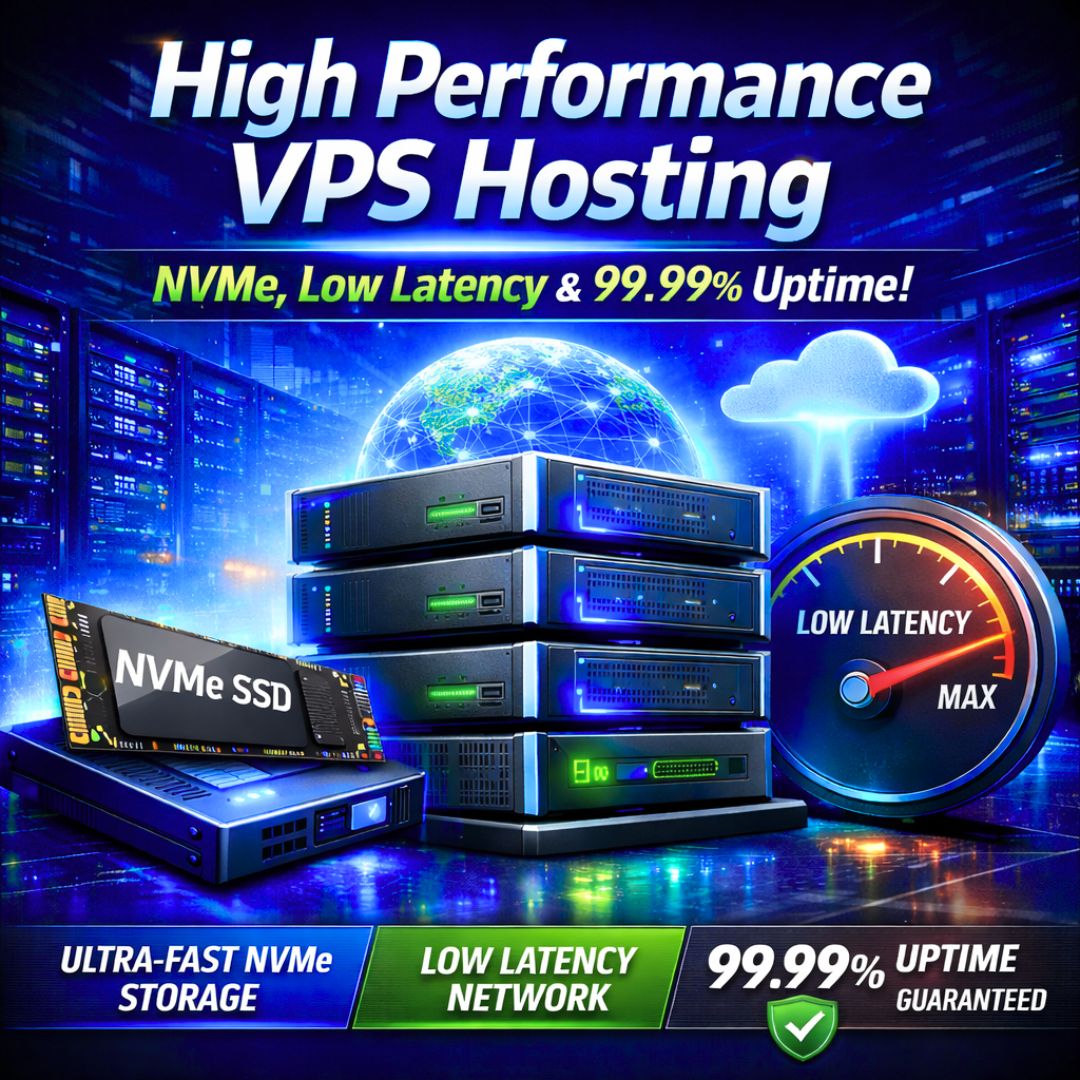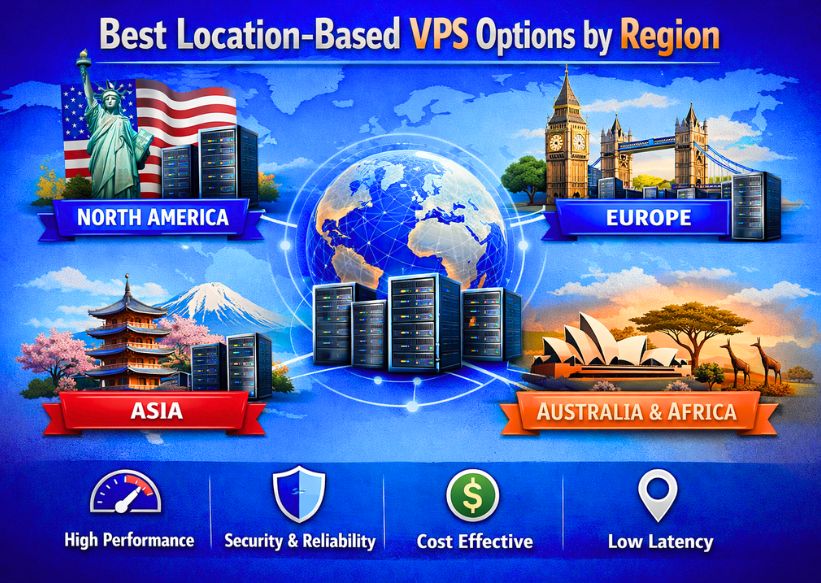
WordPress Hosting Guide 2025: Finding Your Perfect Web Host
- By Anis Ur Rahman
- 02 Jun, 2025
WordPress Hosting Guide 2025:Building a successful WordPress website starts with one crucial decision: selecting the right hosting provider. Your web host determines everything from site speed to security, making this choice fundamental to your online success. This detailed analysis explores today's leading WordPress hosting solutions, providing insights to help you make the best decision for your specific needs.
The Foundation of WordPress Success
Powering over 40% of websites worldwide, WordPress’s performance hinges greatly on the quality of its hosting. A dependable hosting provider guarantees faster load times, minimal disruptions, and enhanced security protocols. Poor hosting choices result in sluggish websites, frequent crashes, and security vulnerabilities that damage your reputation and search rankings.
Modern WordPress hosting extends beyond basic server space. Today's providers offer specialized WordPress environments with optimized configurations, automated maintenance, and expert technical support designed specifically for WordPress users.
Critical Hosting Factors to Evaluate
Speed and Reliability
Site speed has a direct influence on both user experience and search engine ranking performance. Look for hosts utilizing solid-state drives (SSD), advanced caching systems, and content delivery networks (CDN) to maximize performance. Uptime guarantees of 99.9% or higher ensure your site remains accessible to visitors.
Learn Our Guide On : How to Improve WordPress Speed without Plugins - Advanced Techniques
WordPress-Specific Features
Specialized WordPress hosting includes one-click installations, automatic core updates, staging environments for testing changes, and WordPress-trained support teams. These features streamline website management and reduce technical complexity.
Security Infrastructure
Effective security involves SSL certificates, malware scanning, firewall defenses, and consistent application of security patches. WordPress-focused hosts understand common vulnerabilities and implement targeted protection strategies.
Scalability Options
Your hosting should grow with your website. Providers offering seamless upgrade paths from shared hosting to VPS or dedicated servers accommodate increasing traffic and resource demands without complex migrations.
cPanel vs WordPress Hosting 2025: Which is Better?
What's the Difference?
cPanel is like a Swiss Army knife - powerful but needs technical skills. It works with any website type and gives you full control over everything.
WordPress Hosting Dashboard is like a smartphone - simple and user-friendly. It's designed specifically for WordPress sites only.
Quick Comparison
- Pros: Very flexible, works with any website, budget-friendly ($3-15/month)
- Cons: Needs technical knowledge, manual setup required
- Best for: Developers, multiple site types, tight budgets
WordPress Hosting Dashboard:
- Pros: Beginner-friendly, automatic updates, built-in optimization
- Cons: WordPress only, more expensive ($10-50/month)
- Best for: WordPress users, beginners, busy entrepreneurs
2025 Verdict: Which Should You Choose?
Choose WordPress Hosting Dashboard if:
- You only use WordPress
- You're a beginner
- You want automatic maintenance
- Time matters more than money
Choose cPanel if:
- You need maximum flexibility
- You have technical skills
- You manage multiple site types
- Budget is your main concern
For most people in 2025, WordPress hosting 2025 solutions provide the best value. They save time, offer better performance, and eliminate technical headaches.
Quick Comparison Table
Leading WordPress Hosting Providers Analysis
Ummah Host BD : Budget-Conscious Excellence
Ummah Host BD delivers exceptional value with plans starting at $2.99 monthly. Their WordPress-optimized infrastructure includes free SSL certificates, automated backups, and an intuitive control panel. Advanced plans support unlimited websites with enhanced performance features.
Key Advantages: Competitive pricing, reliable performance, user-friendly dashboard Considerations: Limited advanced features on basic plans, support primarily via chat
SiteGround: Performance-Driven Solution
SiteGround sets itself apart with outstanding speed optimization and exceptional customer support. Starting at $3.99 monthly, they provide managed WordPress hosting with proprietary caching technology, staging environments, and award-winning technical support.
Main Advantages: Outstanding performance, exceptional support quality, advanced developer tools Considerations: Higher renewal pricing, storage restrictions on entry plans
Bluehost: WordPress-Endorsed Simplicity
As an officially recommended WordPress host, Bluehost simplifies website creation with streamlined setup processes. Plans begin at $2.95 monthly and include complimentary domain registration, SSL certificates, and comprehensive beginner resources.
Key Advantages: Official WordPress endorsement, beginner-friendly interface, extensive tutorials Considerations: Variable performance quality, frequent upgrade prompts
A2 Hosting: Speed-Focused Innovation
A2 Hosting emphasizes performance with their "Turbo" servers delivering up to 20x faster loading speeds. Starting at $2.99 monthly, they offer developer-friendly features including SSH access, staging areas, and multiple PHP versions.
Key Advantages: Exceptional speed optimization, developer tools, flexible configurations Considerations: Complex interface for beginners, higher-tier features require premium plans
InMotion Hosting: Business-Grade Reliability
InMotion caters to business users with robust hosting solutions starting at $6.39 monthly. Their WordPress hosting includes free website transfers, automatic updates, and business-focused features like enhanced security and marketing tools.
Key Advantages: Business-oriented features, reliable performance, comprehensive support Considerations: Higher pricing, less suitable for personal blogs
Understanding Hosting Categories
Shared Web Hosting
Multiple websites share server resources, making this the most economical option. Ideal for new websites with limited traffic expectations and tight budgets. Performance may fluctuate based on other sites' resource usage.
Managed WordPress Hosting
Providers handle all technical aspects including updates, security, and optimization. Perfect for users prioritizing convenience over cost, allowing focus on content creation rather than technical maintenance.
Virtual Private Server (VPS)
Dedicated server resources within a shared physical machine. Offers greater control and guaranteed resources while maintaining cost-effectiveness compared to dedicated servers.
Cloud-Based Hosting
Resources scale automatically based on demand, ensuring consistent performance during traffic fluctuations. Ideal for websites with unpredictable visitor patterns or seasonal traffic variations.
How WordPress Multisite Hosting Works (2025)
What is WordPress Multisite?
WordPress Multisite is like having one big apartment building instead of many separate houses. You get a single main control center that manages multiple websites simultaneously.
A simple definition: WordPress Multisite enables you to manage multiple websites from a single WordPress installation. Think of it as a network of connected websites.
Why it matters in 2025:
- Saves time managing multiple sites
- Cuts hosting costs significantly
- Makes updates much easier
- Perfect for growing businesses
Imagine you run 5 different websites. Without Multisite, you need to log into each one separately. But when you use Multisite, you can control all 5 from one dashboard.
How Multisite Hosting Works
The Control Dashboard
Your Multisite network has a Super Admin Dashboard. This is your command center.
From here, you can:
- Add new websites instantly
- Install plugins across all sites
- Manage users for every website
- Update themes everywhere at once
It's like being the manager of an entire shopping mall. You control what happens in each store from one office.
Shared Resources System
All your websites share the same:
- Database - One storage system for everything
- Files - Themes and plugins stored once, used everywhere
- Server space - No need for separate hosting accounts
- WordPress core - One installation powers all sites
Think of it like a public library system. Multiple branches, but they all share the same book catalog and management system.
One-Click Management
Adding new sites: Takes less than 30 seconds
Installing plugins: One-click installs everywhere
Theme updates: Update once, applies to all sites
User management: Control who accesses what from one place
This is much faster and easier than managing separate multi-WordPress sites. Instead of doing the same task 10 times, you do it once.
Pros & Cons of Multisite Hosting
The Good Parts (Pros)
Easy Scaling
- Add unlimited websites quickly
- No need for new hosting accounts
- Perfect for growing agencies
Central Control
- Manage everything from one place
- Apply updates to all sites instantly
- Control user permissions network-wide
Cost Savings
- One hosting bill instead of many
- Shared resources mean lower costs
- Less time spent on maintenance
Better Security
- Update security patches once for all sites
- Centralized backup system
- Easier to monitor threats
The Challenges (Cons)
Resource Heavy
- All sites share the same server power
- High traffic on one site affects others
- Need stronger hosting plans
Complex Setup
- Harder to configure than single sites
- Requires technical knowledge
- Backup and migration are more complicated
Limited Flexibility
- All sites must use the same WordPress version
- Plugin conflicts affect the entire network
- Harder to customize individual sites
Single Point of Failure
- If the network goes down, all sites go down
- Database issues affect everything
- More risk with shared resources
Who Should Use Multisite in 2025?
Digital Agencies
You manage websites for many clients, that’s why you need Multisite to make your work easier.
Perfect for:
- Web design companies
- Marketing agencies
- Freelancers with multiple clients
Why it works: If you update all client sites at once, you can manage everything from one dashboard.
Educational Institutions
Schools and universities need many websites for different departments.
Common uses:
- Main school website
- Department pages
- Student organization sites
- Faculty personal pages
Benefits: Students and staff can easily get their own sites. IT teams manage everything centrally.
Blog Networks
You run multiple blogs on different topics.
Examples:
- Food blog + travel blog + tech blog
- Local news sites for different cities
- Niche blogs targeting different audiences
Why it helps: Share content between blogs. Manage all your blogs from one place.
Large Corporations
Big companies need websites for different branches or products.
Use cases:
- Regional office websites
- Product-specific sites
- Employee portals
- Partner websites
Advantages: Consistent branding across all sites. Central IT control.
Franchise Businesses
Each franchise location needs its own website, but with consistent branding.
Perfect for:
- Restaurant chains
- Real estate companies
- Service businesses with multiple locations
Benefits: Each location gets customization while maintaining brand standards.
Is Multisite Right for You?
Choose Multisite if:
- You manage 3+ websites regularly
- Your sites share similar purposes
- You want centralized control
- You have technical skills or support
Avoid Multisite if:
- You only have 1-2 websites
- Your sites are completely different
- You prefer simple management
- You're not comfortable with technical setups
Bottom line: WordPress Multisite works best when you need to manage many related websites efficiently. It saves time and money, but requires more technical knowledge to set up properly.
The key is matching your specific needs with what Multisite offers. For the right situation, it's incredibly powerful. For simple website needs, regular WordPress might be easier.
Strategic Selection Guidelines
Assess Your Requirements
Evaluate expected traffic volume, technical expertise level, and budget constraints. Personal blogs have different needs than e-commerce sites or business websites requiring high availability.
Consider Growth Trajectory
Choose providers offering clear upgrade paths to accommodate future expansion. Your hosting solution should support increased traffic, additional features, and enhanced performance requirements as your website grows.
Evaluate Support Quality
Technical support quality varies significantly between providers. Look for 24/7 availability through multiple channels, WordPress-specific expertise, and responsive resolution times based on user reviews and testimonials.
Analyze Total Cost of Ownership
Consider both promotional and renewal pricing when calculating hosting costs. Many providers offer attractive introductory rates that increase substantially upon renewal, affecting long-term budgeting.
Optimization Strategies for WordPress Performance
Implement Effective Caching
Utilize both server-level caching provided by your host and WordPress caching plugins to reduce loading times. Proper caching configuration can improve site speed by 50% or more.
Optimize Media Files
Compress images and videos to reduce bandwidth usage and improve loading speeds. Many hosts offer automated image optimization tools as part of their service packages.
Regular Maintenance Practices
Maintain the security and performance of your WordPress site by keeping the core, themes, and plugins consistently updated. Managed hosting providers often handle these updates automatically, reducing maintenance overhead.
Security Considerations
Multi-Layer Protection
Apply robust security protocols, such as using strong passwords, enabling two-factor authentication, and conducting regular security scans. Quality hosts provide integrated security tools and monitoring services.
Backup Strategies
Maintain regular automated backups with easy restoration options. Your hosting provider should offer daily backups with multiple retention periods for comprehensive data protection.
Making Your Final Decision
If you follow this WordPress Hosting Guide 2025, you'll learn that selecting the optimal WordPress hosting involves balancing performance, features, and budget. Ummah Host BD is ideal for budget-conscious users seeking reliable performance, SiteGround stands out for speed and excellent support, Bluehost is perfect for WordPress beginners, and A2 Hosting caters to those who prioritize maximum performance.
Consider your website's unique requirements, technical comfort level, and growth expectations when choosing. Remember that hosting is an investment in your website's success – prioritize quality and reliability over minimal cost savings.
Begin your WordPress journey with confidence by selecting a hosting provider aligned with your objectives and technical capabilities. The right hosting foundation enables long-term success and sustainable growth for your online presence.
This article was updated in September 2025 to include the latest insights on WordPress Multisite Hosting, advanced speed optimization techniques, and an updated cPanel vs WordPress Hosting 2025 comparison.
How to Improve WordPress Speed without Plugins - Advanced Techniques

Author By
Anis Ur Rahman
Anis Ur Rahman writes domain and web hosting–related articles on behalf of Ummah Host BD. He works with domain name selection, web hosting, BDIX hosting, and website performance, and creates informational guides based on practical experience to help users make informed decisions. His writing focuses on providing reliable, easy-to-understand, and decision-supportive content.
Search Blog
Categories
Latest News

15 Feb, 2026

13 Feb, 2026







